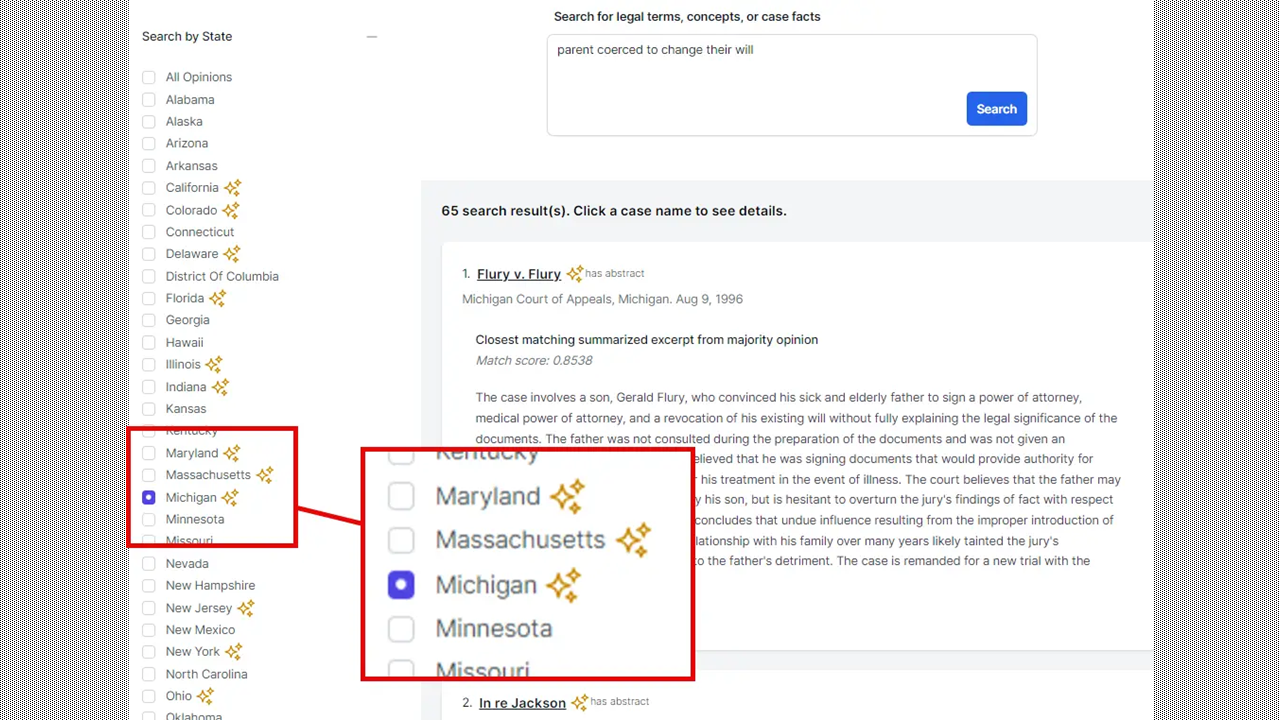descrybe.ai, a year-old legal research startup focused on using artificial intelligence to provide free and easy access to court opinions, has completed its goal of creating AI-generated summaries of all available state supreme and appellate court opinions from throughout the United States.
descrybe.ai describes its mission as democratizing access to legal information and leveling the playing field in legal research, particularly for smaller-firm lawyers, journalists, and members of the public.
It uses AI to generate summaries of court opinions and make them searchable. Opinions from 18 states so far also have AI-generated abstracts, highlighting the parties, issue, background, procedural history, analysis and holding.
“This is a major milestone for legal research and for access to justice,” said Kara Peterson, who cofounded descrybe.ai with her husband Richard DiBona, the software engineer who developed it. “Not only does our tool present an alternative to cost-prohibitive traditional search methods, but our unique approach also lowers barriers to the law because of the way the tool is built.”
descrybe.ai enables users to search using natural language, without having to match exact words. Search results, which can be sorted by relevance or recency, show paragraph-long summaries of matching opinions. Clicking through shows not only the full case, but also the AI-generated summary and, if one is available, the abstract.
The company says it is currently working on adding summaries of federal district court and appellate opinions and expects to have them within the first half of this year.
It also has a limited range of trial court opinions for Connecticut, Massachusetts and New Jersey.
An opinion tracker within descrybe.ai lets users follow its progress in summarize opinions. So far, the tracker says, it has summarized 2.5 million opinions.
There is no cost or sign-up required to use the site, so if you are curious about it, give it a try.
 Robert Ambrogi Blog
Robert Ambrogi Blog